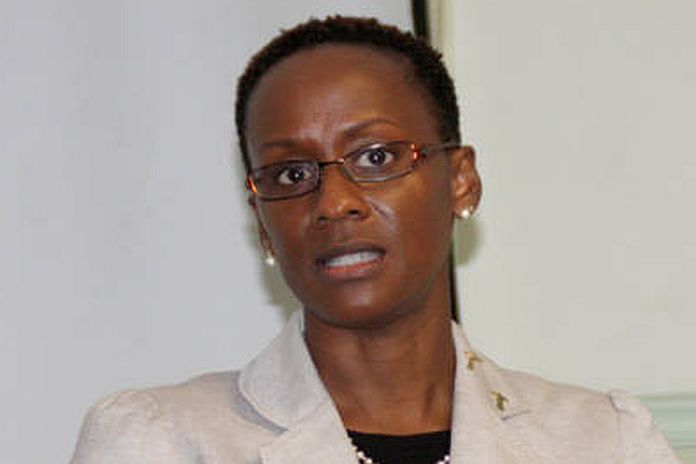By Caribbean News Global contributor
KINGSTOWN, St Vincent — Following St Vincent and the Grenadines 13 positive COVID-19 case on Tuesday, April 21, 2020, chief medical officer, (CMO) Dr Simone Keizer-Beache gave the assurance that “every case involves contact tracing, and this is even more important in this situation.”
Contact tracing involves medical officials going into the community where a case is identified and or suspected, interviews are conducted with the individual and persons around them such as family members, close friends, neighbours, and co-workers, in a widening circle in an attempt to identify and isolate persons who were or did come into contact with a suspected COVID-19 case.
April 21, 2020, statement from St Vincent and the Grenadines ministry of health, informed the nation of the 13 positive COVID-19 case, adding that “the new positive COVID-19 case, which remains under investigation.” According to Dr Keizer-Beache, who was speaking at a press briefing called by the ministry of health, “the importance of contact tracing is even more important here because you are trying to identify who and where you should be guided?
“It is not a blind science. It is based on where the person might have been, what are their contacts, what are their possible exposures. Even as we do that, even before this our strategy in terms of surveillance has been looking for any cases where ever they might be in St Vincent and the Grenadines. So even though all of our cases until earlier this week we had definitive see somebody who came in and somebody who was under quarantine, we have always been looking for that case who might not be somebody in that group who flew in.”
More than five persons have been identified by the group of health officials, led by Dr Roger Duncan as having been in contact with COVID-19 case number 13.
On Thursday, April 23, 2020, hours after the conclusion of the press briefing, the ministry of health informed via a release that “St Vincent and the Grenadines have recorded its 14 positive COVID-19 case. Today’s new case is closely associated with the one which was reported on Tuesday, April 21, by the Caribbean Public Health Agency (CARPHA), the first since April 9, 2020. Chief medical officer, Dr Simone Keizer Beache, says investigations of these cases are continuing and have been productive thus far. However, it is still too early to issue a definitive statement on the source of infections.”
At the press briefing, Dr Keizer-Beache pointed out that, “the testing strategies we have used, we have not always tested someone who had a travel history, which is what an imported case would be. We have been tracking, looking, and that is what we will continue to do.”
St Vincent and the Grenadines CMO told the briefing that in the coming days, the health officials will be going into the clinics, looking at all influenza-like illnesses, identify pass or suspected COVID-19 hot-spots, and taking a harder look at the health care workers for they are the most likely to contract the virus or to infect someone in return.
Additionally, vulnerable groups such as the elderly, persons who are diabetic, and or hypertensive are going to be given increased attention in the coming days and weeks, Dr Keizer-Beache added.
“That is what we need to do. As soon as you can identify and you can quarantine and isolate, you have a better opportunity to slow the spread which is our aim,” the Vincentian CMO clarified. “This COVID-19 is here, is in the world, is something we have to learn to live with, to continue our lives.
“Currently, the management of COVID-19 is symptomatic. If someone has difficulties breathing you would apply medication or techniques to deal with that. The persons who recovered did not require any medication or intervention. They were mild, they recovered on their own.”
Research shows that 80 percent of COVID-19 cases are mild, but Dr Keizer-Beache said that this figure could be higher. Additionally, the percentage of persons who may not be aware that they are carriers of the virus could be even higher than is estimated. “There is no specific treatment, but rather monitoring and advice,” Dr Keizer-Beacher concluded.





